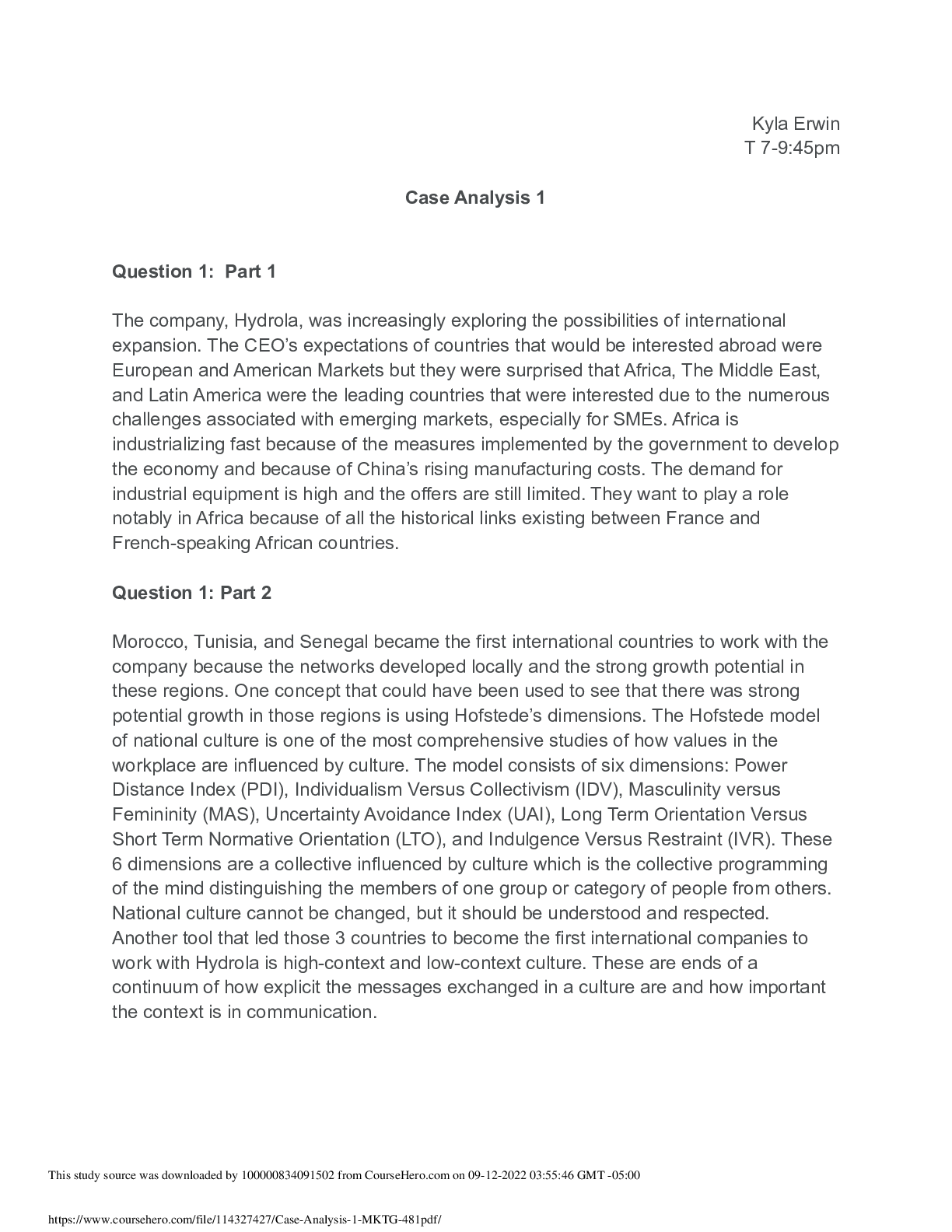Kyla Erwin Case Analysis 1Question 1: Part 1
The company, Hydrola, was increasingly exploring the possibilities of international
expansion. The CEO’s expectations of countries that would be interested abroad were
Euro
...
Kyla Erwin Case Analysis 1Question 1: Part 1
The company, Hydrola, was increasingly exploring the possibilities of international
expansion. The CEO’s expectations of countries that would be interested abroad were
European and American Markets but they were surprised that Africa, The Middle East,
and Latin America were the leading countries that were interested due to the numerous
challenges associated with emerging markets, especially for SMEs. Africa is
industrializing fast because of the measures implemented by the government to develop
the economy and because of China’s rising manufacturing costs. The demand for
industrial equipment is high and the offers are still limited. They want to play a role
notably in Africa because of all the historical links existing between France and
French-speaking African countries.
Question 1: Part 2
Morocco, Tunisia, and Senegal became the first international countries to work with the
company because the networks developed locally and the strong growth potential in
these regions. One concept that could have been used to see that there was strong
potential growth in those regions is using Hofstede’s dimensions. The Hofstede model
of national culture is one of the most comprehensive studies of how values in the
workplace are influenced by culture. The model consists of six dimensions: Power
Distance Index (PDI), Individualism Versus Collectivism (IDV), Masculinity versus
Femininity (MAS), Uncertainty Avoidance Index (UAI), Long Term Orientation Versus
Short Term Normative Orientation (LTO), and Indulgence Versus Restraint (IVR). These
6 dimensions are a collective influenced by culture which is the collective programming
of the mind distinguishing the members of one group or category of people from others.
National culture cannot be changed, but it should be understood and respected.
Another tool that led those 3 countries to become the first international companies to
work with Hydrola is high-context and low-context culture. These are ends of a
continuum of how explicit the messages exchanged in a culture are and how important
the context is in communication.
[Show More]


